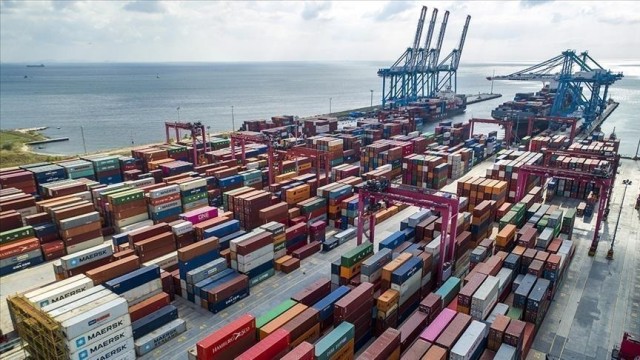Tokyo, August 21 (V7N) – Japan’s exports recorded their steepest monthly drop in nearly four years this July, driven by intensifying U.S. tariffs and broader global trade headwinds. According to government data released on Wednesday, total exports fell by 2.6% year-on-year in July, the largest drop since February 2021 when exports fell 4.5%.
The decline exceeded the market’s median forecast of a 2.1% contraction and marked the third consecutive month of export shrinkage, following a 0.5% drop in June. While the overall value of exports decreased, shipment volumes remained relatively stable. Economists attribute this resilience to Japanese exporters’ cautious approach in avoiding price hikes.
Takeshi Minami, Chief Economist at the Norinchukin Research Institute, noted that exporters have so far absorbed the costs rather than passing them on to consumers. “But they would eventually have to pass on costs to U.S. consumers and that would further hamper sales in the coming months,” he said.
Exports to the United States, Japan’s largest trading partner, fell sharply by 10.1% year-on-year in July. This included a 28.4% slump in automobile exports and a 17.4% drop in automotive components. However, in volume terms, automobile exports declined only 3.2%, suggesting price reductions and internal cost absorption may have softened the blow from new tariffs.
In April, the United States imposed a 25% tariff on Japanese automobiles and auto parts and threatened further duties on other exports. Though a partial trade agreement was reached on July 23—reducing the tariff to 15% in exchange for a Japanese investment package worth $550 billion—automotive tariffs remain significantly higher than the previous 2.5%, continuing to pressure Japanese manufacturers.
Exports to China, another key market, were also down 3.5% in July, indicating broader weakness across multiple trading regions.
On the import side, Japan saw a 7.5% year-on-year decline in July, slightly less than the expected 10.4% drop. The combination of falling exports and imports led to a trade deficit of 117.5 billion yen (approximately $795.4 million), sharply contrasting with forecasts of a 196.2 billion yen surplus.
The latest data raise concerns about Japan’s export-reliant economy, especially at a time of increasing geopolitical tensions and shifts in global trade policies. Economists warn that unless trade conditions stabilize and tariffs ease further, Japan’s economic recovery could face significant headwinds in the coming quarters.
END/WBD/SMA/































Comment: